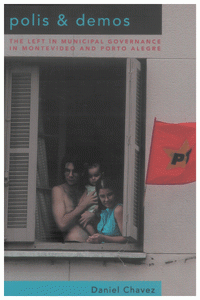Ideas into movement
Boost TNI's work
50 years. Hundreds of social struggles. Countless ideas turned into movement.
Support us as we celebrate our 50th anniversary in 2024.


Since 1989, the city of Porto Alegre, capital of the Brazilian state of Rio Grande do Sul, has been governed by the PT - Partido dos Trabalhadores (Workers' Party). In 1990, less than a year after the start of the leftist experiment in Porto Alegre, the FA - Frente Amplio (Broad Front) took office in the capital city of Uruguay. At the beginning, the innovative process of participatory decentralization launched by the new government in Montevideo was as radical, and even more ambitious, than the simultaneous process of participatory budgeting developed in Porto Alegre. After more than a decade of parallel evolution, both cities exhibit similarly impressive improvements in municipal management and social policy indicators, though the type and level of participation are rather different. While Porto Alegre has achieved a well-sustained fame as the world's capital of participatory democracy, the process of decentralization in Montevideo is in crisis, with a clear drop in citizens' participation. Do these experiences of participatory and decentralized municipal planning and management represent a more democratic and accountable pattern of governance? Can Montevideo and Porto Alegre be considered two distinctive cases within a common political framework? Do the new institutional arrangements fostered by the left contribute to the building of a more cohesive form of civil society? What are the social results and the long-term prospects of these experiences? Are they sustainable? How to explain the similar yet different outcomes of participatory policies in Montevideo and Porto Alegre? How do these two experiences fit with cotemporary theoretical discussions on alternative models of democracy and governance? What and how have they contributed to the development of a new left praxis at national, regional and global levels? In reviewing and comparing the cases of Montevideo and Porto Alegre, the book aims to contribute to a more extensive and deeper understandings of left politics and democratic public policies in Latin America and the Global South.
Pages: 264